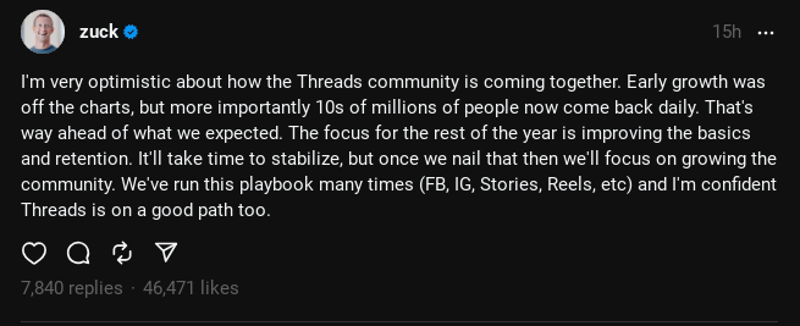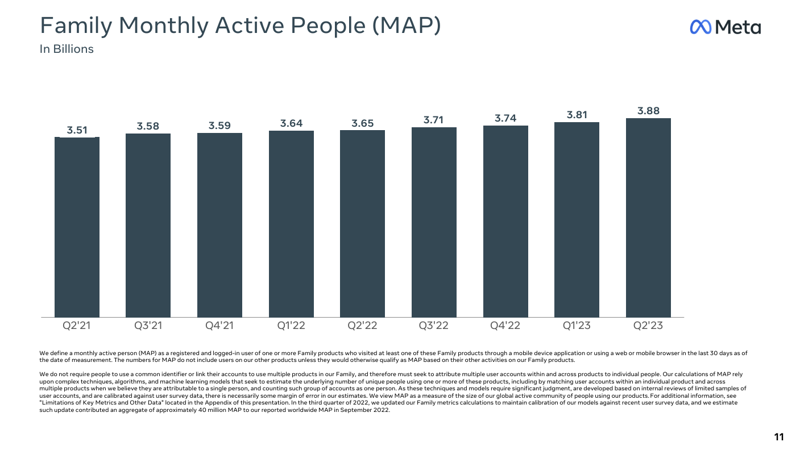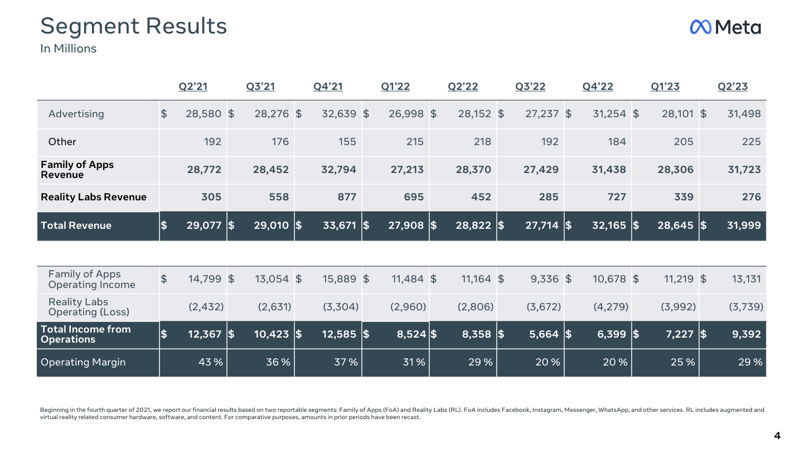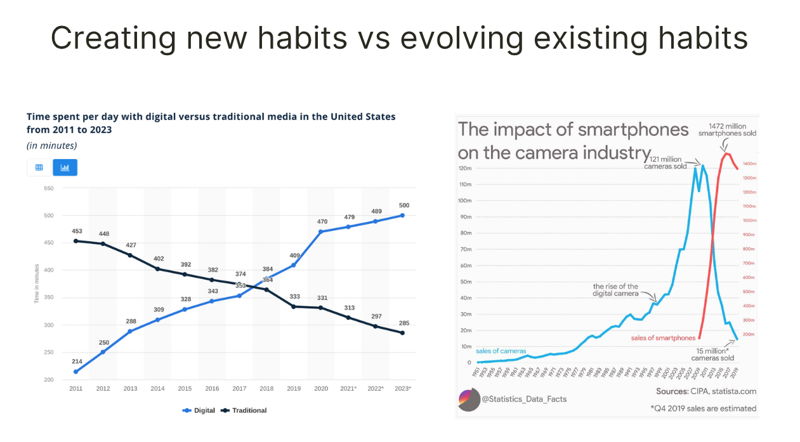Threads vs Metaverse: habits, not technology, make a Platform

It’s been fun to watch the growth of Threads. Earning 20% of the weekly active user base of Twitter within two weeks is impressive, even for Zuck.

Threads already won the ultimate Platform growth accolade: attention from U.S. lawmakers, who are today interested in its content moderation policies, but in future will be interested in much more than that.
Meta own the biggest people-network in the world, and they’re making the most of it. As they should.
Technology alone does not build a Platform
As I’ve written about before, Platforms aren’t tangible things. Sure, technology gets built, people get hired, and offices get kitted out with foosball tables and smoothie bars. But all of that comes and goes.
Facebook started life in a dormroom, with 4(ish) co-founders. Today Meta has offices all over the world, many of which are - sadly - emptier than planned. Just one of the four(ish) co-founders of Facebook remains at the company - Zuck. For Meta, employees come and go.
Facebook started life as a simple PHP/MySQL application, hosted on an $85 a month server. Today Meta operates 15+ datacentres all over the world, and maintains some of the most popular open source projects. Facebook’s React framework replaced much of what came before it, and - over time - React will be replaced by something else.
For Meta, technology comes and goes. It’s a means to an end.

Even with all that technology and people coming and going, over all those years, Meta has continued to grow without missing a beat. It expanded its Monthly Active People metric for each of the past 10 quarters. With an impressive Q2 23 earnings safely in the bag, Meta are now closer than ever to 4 billion monthly active people across their Platform.
It say Platform - and not “Platforms” - deliberately. Meta is one big global network - a Platform - of people. It’s not a random selection of products. Recent hyper-growth of Threads is testament to the value of this network.
In Zucks own words:
“On Threads, briefly, I’m quite optimistic about our trajectory. We saw unprecedented growth out of the gate and more importantly we’re seeing more people coming back daily than I’d expected. And now, we’re focused on retention and improving the basics. And then after that, we’ll focus on growing the community to the scale we think is possible.
“Retention” is growth team speak for “habits.” Intangible as it is, Meta has built and is built on a habit monopoly, and Zuck appears to now remember what it takes to aggregate, build and grow exactly that - habits.
Habit Monopolies
In its early days, Facebook put itself on a path to 1 billion users by doing simple growth tactics well. Small teams, super focused, building everything from SEO-optimized landing pages to email import plugins.
It “acquired” users from MySpace, Friendster, Bebo, and a gazlillion other competitors in the market. Facebook offered a simpler, faster experience that helped users get to their “magic moment” quickly. That magic moment? Getting new users to connect with seven friends in ten days. It became the main goal of Facebook’s growth team. Why?
Because the faster Facebook connected people with other people through their Platform, the faster those people develop long-lasting habits around it. MAUs and DAUs are magic metrics. Habits are the goal.
Before Facebook ever existed, people had already formed habits around news, ecommerce, music, video email, and photos. Facebook aggregated many of those habits through integrations with news publishers, aggregated many more habits through integrations with email, and aggregated even more habits through their people-first photo applications.
Which is how Meta built the ultimate habit monopoly. 4 billion of us built monthly habits around Facebook, Instagram, and WhatsApp. Some of those habits translate into the world of work. People - and their habits - are now as integrated with Meta as the hundreds of thousands of products and companies built atop Meta’s Platform.
With Threads, Twitter users - and their habits - are migrating to Meta. Half the world’s population are already active on Meta’s Platform, so it’s likely the lions share of Twitter users are already active on it.
So it’s a simple exercise in habit migration. “Retention” is the easy bit.
Clouds on the Horizon?
All this stands in stark contrast to Meta’s prevailing narrative about the growth of the Metaverse/Web3/etc. Not only has Horizon Worlds lost users, Meta is heads-down battling to retain what’s left of them. Horizon worlds peaked at 300,000 monthly active users in February 2022 - a measly 0.01% of Meta’s 4 billion monthly active people.
Those 300,000 monthly active users cost Meta $21billion to acquire - $7.7billion of that spent this year alone. That’s $70,000 per user.

The nail in the Horizon Worlds coffin? Reality Labs revenue - in contrast with everything else in Meta-land - is on the decline.
Back to Zuck on what that this all might mean over the long term:
“One note that I want to mention about the Threads launch related to our Year of Efficiency is that the product was built by a relatively small team on a tight timeline. We’ve already seen a number of 2 examples of how our leaner organization and some of the cultural changes that we’ve made can build higher quality products faster, and this is probably the biggest example so far.”
Might Zuck be inferring Horizon Worlds is a low quality product? And that it’s been built more slowly than planned? And that too many people are working on it relative to the rest of the business?
Maybe.
Or maybe Horizon Worlds is failing because everyone - including Zuck - forgot what built Facebook in the early days. Aggregating existing habits to create new ones.
Habit Stacking
James Clear - author of Atomic Habits - knows what it takes for humans to build new habits.
With every day that goes by we “program” our brains based on what we do and don’t do. Our brain builds and prunes connections between neurons that we use most, or least. It’s called Synaptic Pruning:
“You probably have very strong habits and connections that you take for granted each day. For example, your brain is probably very efficient at remembering to take a shower each morning or to brew your morning cup of coffee or to open the blinds when the sun rises … or thousands of other daily habits. You can take advantage of these strong connections to build new habits.”
Taking advantage of these strong connections to build new habits is what James Clear calls “Habit stacking.” It’s big reason why 4 billion of us interact with Meta’s Platform every month.
Looking at our phones to check our messages is a habit. Swiping through cat videos on TikTok is a habit. Checking Twitter for news is a habit.
Yet each of these habits was built upon previous habits.
Before we checked our phones for new messages, we checked our laptops and desktop computers for them. Before that, we checked voicemails and landlines and cellphones. Before that, fax machines. And so on.
Before we checked Twitter for news we read it on websites like BBC.com. Before that, we watched BBC news on televisions. Before that we listened to radio bulletins on BBC radio. Before that, we read newspapers.
You get the point. New habits are an evolution of habits we’ve already had.
Evolving these habits, however, takes time.

Even with all those existing habits to build on, time spent per day with digital only overtook time spent with traditional media in the U.S. in mid-2017. Traditional media was declared dead long before that, even though printed newspapers are an invention hundreds of years in the making.
It took digital cameras over two decades to take hold and eventually grow the camera market. And, when the smartphone came along in 2007, it still took over a decade for most digital camera users to switch their existing digital photo-taking habits over to phones powered by iOS and Android.
Which is why Horizon Worlds hasn’t worked yet, and the Metaverse with it. New habits take time to form, even when built on existing habits.
But for Horizon Worlds and the Metaverse, there are no existing habits to port over to it.
Pop a computer on your face? We already tried that and failed miserably. Events in the Metaverse? Zoom quiz nights? We tried those, too, and they fared even worse in spite of a captive (literally) audience through the early days of pandemic lockdowns.
Even voice bots - despite much enthusiasm - failed to offer enough utility value beyond music, shopping lists, and weather.
Combined together, each of these technology innovations should have been ingredients for a warm Metaverse stew, but none of these innovations found widespread traction - or created new habits - in their own right.
Time will tell, but Threads might by the stone that killed two birds - Twitter and Horizon Worlds. Pun very much intended.
